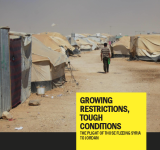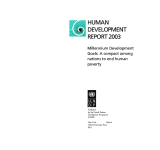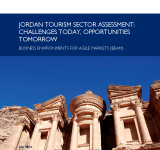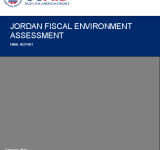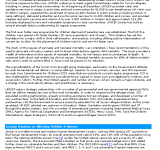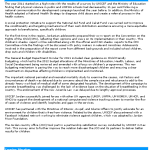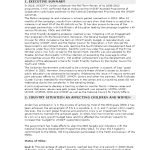international
يستند مضمون هذا التقرير المتعلق بالأردن إلى حد كبير إلى زيارة بحثية قامت بها منظمة العفو الدولية إلى البلاد في يونيو/حزيران 2013. وقد التقى وفد المنظمة بممثلي السلطات الأردنية ووكالات الأمم المتحدة والوكالات الإنسانية الدولية والمنظمات غير الحكومية والجمعيات الخيرية;; فضلاً عن أكثر من 150 لاجئاً من سوريا في مجتمعات اللجوء والمجتمعات المضيفة. ونشرت منظمة العفو الدولية هذا التقرير بهدف لفت الانتباه إلى الصعوبات التي يواجهها الفارون من سوريا طلباً للسلامة. وفي الوقت الذي يركز فيه التقرير بشكل رئييس على الأوضاع في الأردن;; فإنه يتضمن تحديثا للمعلومات التي كانت المنظمة قد نشرتها في السابق بشأن التحديات التي يواجهها اللالجئون من سوريا في البلدان المجاورة. وقد أمعنت منظمة العفو الدولية النظر في التحديات التي يواجهها اللاجئون في الأردن;; ولا سيما أولئك الذين يقطنون في مخيم الزعتري;; وهو أضخم مخيمات اللاجئين من سوريا في الأردن. وأجرت المنظمة تحقيقاً حول معاناة اللاجئين;; ليس من ظروف المعيشة القاسية في الصحراء فحسب;; وإنما أيضاً من ارتفاع معدلات الجريمة وغيرها من المخاوف الأمنية.
This report provides an assessment of the Millennium Development Goals;; laid out by the UN Millennium Declaration. The UN Millennium Declaration was adopted in September of 2000 as a commitment on the part of the world's leading nations to reduce poverty;; improve health and promote peace;; human rights;; and environmental sustainability. The Millennium Development Goals are specific;; measurable targets that aim to reduce extreme global poverty by the year 2015. This report analyzes the challenges and barriers to meeting these goals as of 2003;; examining the successes and failures of various nations and the gaps that exist between regions and countries with regards to economic growth and human development. This report then examines the successes and failures of public and private policies with regards to hunger;; health;; water and sanitation;; education;; and environmental sustainability. This report also analyzes the participation of civil society throughout the world and the mobilization of grassroots support for the various human development goals. Finally;; this report presents a number of recommendations on what countries can do to best support these goals.
The tourism sector assessment report examines critical questions related to Jordan's best opportunity areas for tourism development growth that will result in increasing tourism receipts;; private-sector investment in tourism;; and tourism-related employment. The report identifies global trends;; best practices;; and benchmarks shaping tourism demand and competitiveness. It also suggests approaches for expanding tourism in key Jordan governorates and secondary destination in ways that benefit local communities. According to the assessment;; Jordan is well-positioned to move from a regional;; multi-country tourist destination to a stand-alone destination with a portfolio of tourism products with year-round appeal for foreign and domestic visitors;; and this will require a long-term commitment from both public and private stakeholders. It suggests collaboration between Jordan's government and private sector;; localized and inclusive economic development implementation strategies and increase in the supply of skilled tourism workforce professionals.
The assessment report is a final product of the Asia and Middle East Economic Growth Best Practices project (AMEG);; which is designed to support USAID missions in developing effective and efficient economic growth programs that address technical and strategic challenges. The report provides an introduction to Jordan's macroeconomic performance and structure and examines the field assessment's key lines of inquiry such as fiscal environment;; taxation;; customs and trade facilitation;; the energy sector;; policy analysis and political economic environment. It identifies the structure and performance of each inquiry and adds policy;; administrative;; and institutional environment;; and its challenges and opportunities.The report's concluding section outlines key challenges and opportunities;; and offers recommendations. Some of the findings include Jordan's lack of robust forum for soliciting and integrating input on economic policy issues from key stakeholders or the wider public and lack of institutional capacity to develop macroeconomic models. The report suggests facilitating national dialogue and consensus building on economic policy issues and building capacity to integrate stakeholder input.
The annual report summarizes and evaluates the humanitarian and developmental assistance of the UNICEF Jordan Country Office (JCO) in 2012. The report also includes evaluation of the ongoing projects such as providing humanitarian aid for Syrian refugees in camps and host communities;; establishing foster care programme for children deprived of parental care;; and supporting advocacy work on children’s rights to education and women empowerment. The analysis of the report is based on the progress and assessment of the JCO’s projects in partnership with other organizations in relevant fields. In the report;; the limited capacity and number of social workers and lack of technical support from the government in budgeting and social policy reforms are identified as major obstacles.
The 2011 annual report provides a comprehensive summary of the ongoing projects by the UNICEF Jordan Country Office (JCO). The programmes and projects include social protection initiatives for the National Aid Fund and Zakat Fund;; national perinatal and neonatal mortality study and development of nationwide computerized violence tracking system. . The analysis of the report is based on the progress and assessment of the JCO’s projects in partnership with other organizations in relevant fields including the Ministries of Interior;; Awqaf and Islamic Affairs and other UN agencies (UNDP;; UNFPA;; UNWOMEN;; UNHCR and WHO). The report specifies the organization’s methodology in collecting data and evidence and monitoring mechanisms to track and assess programme progress. In evaluating the development of ongoing projects;; the report summarizes future work plans and examines critical factors and constraints in each project.
The annual report provides an overview to the country situation in regards to children and women and summary of the humanitarian and developmental assistance of the UNICEF Jordan Country Office (JCO) in 2010. The report includes Jordan’s progress in achieving the Millennium Development Goals in addition to the analysis of the organization’s projects. The projects focus on assisting Iraqi children in education and strengthening young child survival and development and adolescents’ participation and empowerment. The analysis of the report is based on the progress and assessment of the JCO’s projects in partnership with other UN agencies;; local agencies and government ministries. Some highlights of the 2010 annual report include the Ma’An campaign to end violence in school;; the UNICEF’s partnership with the government in supporting Iraqi children in gaining access to public education and a joint programme to develop a tracking system to monitor family violence and abuse cases with other UN agencies and Jordan’s National Council for Family Affairs.

